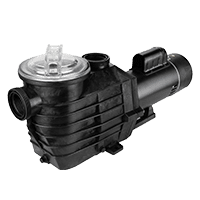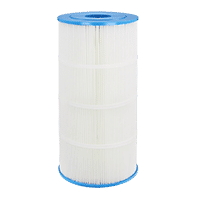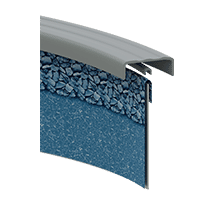- Are saltwater shaft seals, only for saltwater pools?
“Should I use a heavy duty shaft seal on my pool pump, or is the standard shaft seal okay?”
Tommy – Portland, OR
First, what is a shaft seal? It is a two-sided seal that encloses the pool pump’s shaft, preventing any leaks in the electric motor. The shaft seal has a white ceramic piece with a rubber sleeve called the Seat. The other side is a spring-loaded sits that butts up against the white ceramic Seat. And the spring loaded side is called the Head. The spring makes sure the seat is in constant contact with the slick black face of the Head.
When to use a Heavy Duty (Saltwater) Seal
Saltwater is more corrosive than traditional chlorine, meaning metals and rubbers are likely to rust and break down quicker. Because a shaft seal contains more metal and rubber, it is doubly important to use the higher grade shaft seal on a saltwater pool. Also, if you have a heater on your pool or spa, a heavy duty shaft seal holds up better to heated water. The reason being is several different parts of the shaft seal, for instance, the Viton Rubber used on the heavy-duty shaft seal versus the Buna Rubber used on the regular shaft seal. The Seat material uses a carbon primary ring versus a plastic primary ring, and the heavy duty shaft seal head uses a polished ceramic seal versus just a regular ceramic seal.
For pool owners with traditional chlorine pool, heavy duty seals can be used as an extra failsafe for your pool pump.
Cost?
The heavy duty shaft seal is only a few dollars than the standard shaft seal so it makes sense to invest in the better shaft seal to protect a two hundred dollar motor.













Leave a Reply